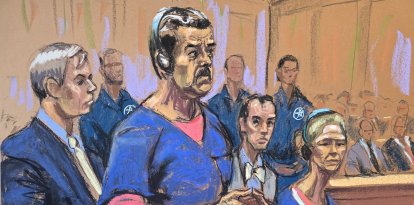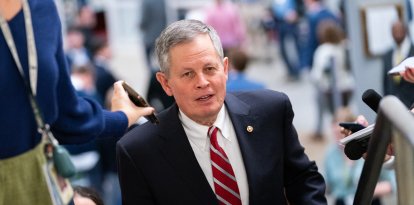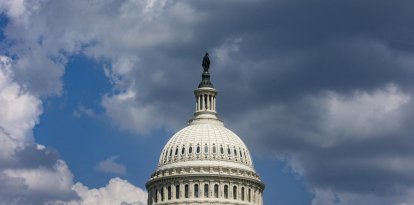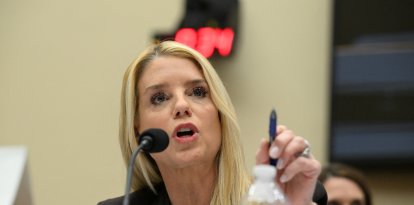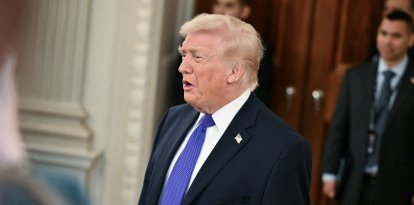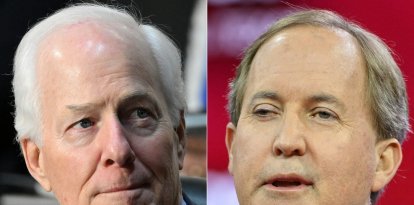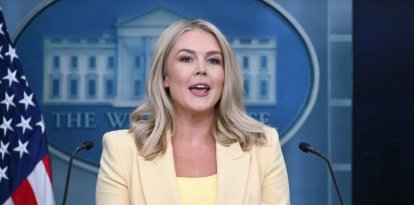How all the Kennedys have fared in presidential elections
Robert Kennedy Jr.'s announcement of his candidacy put the historic last name back in the race for the White House, something that had not happened in 43 years.

Robert Kennedy- John Kennedy- Ted Kennedy/ Wikimedia Commons
After 43 years, the Kennedy name has returned to the presidential election. Robert Kennedy Jr.'s decision to enter into the Democratic primary has a mountain of history behind it. Robert Jr. is the fourth Kennedy to seek the presidency. The prior three campaigns have been met with varying degrees of success, while a potential fifth Kennedy candidate died while considering a run for office.
Robert Kennedy Jr. formalized his candidacy last Wednesday in the city of Boston, where he promised to end political polarization in the United States, restore confidence in public institutions, encourage the transition to clean energy and reverse the country's "economic decline."
"This is what happens when you censor somebody for 18 years. I got a lot to talk about. They shouldn't have shut me up for that long because now I'm really going to let loose on them for the next 18 months. They're going to hear a lot from me!" he said to a group of supporters.
John Kennedy
Robert Jr. became the fourth Kennedy to announce his candidacy for president, behind John, Bobby (his father) and Ted, in that order. JFK was the first of the dynasty to impact American politics. He entered the House of Representatives in 1947 and then served as a senator for seven years until he entered the 1960 presidential election.
He won in a close race against his colleague Lyndon Johnson, who would later join him on the ticket as vice president. He took advantage of the intrusion of television in the debates and managed to boost his candidacy through his image. As Roger Stone wrote years later, Kennedy spent the afternoon before the debate sunbathing on the hotel terrace and arrived at the event as a "golden God."
In contrast, Richard Nixon, his opponent, "arrived late, looking tired, haggard, underweight from his recent knee surgery and famously refused makeup." In short, "JFK looked tanned and confident, Nixon looked pale and nervous," he recalled in his book "Stone's Rules."
Kennedy won on Election Day with 303 electoral votes to Nixon's 219. The 51 electors in Texas and Illinois defined the result in his favor, since the numbers were very close in those states. The popular vote also went to the Democrat, who by a difference of approximately 112,000 votes out of the 70 million that were cast.
Robert "Bobby" Kennedy
Eight years later, Robert "Bobby" Kennedy, Robert Jr.'s father, attempted to bring the family name back to the White House after the assassination of his brother John in 1963. With Johnson previously announcing that he would not seek a second full term, the primary was to be decided between Hubert Humphrey, Eugene McCarthy and Bobby Kennedy.
The final sprint was very favorable to Kennedy, who claimed victory in South Dakota and California, definitively boosting his name ahead of the convention. However, just as he finished delivering his victory speech in The Golden State, Bobby Kennedy was assassinated in the kitchen of the Ambassador Hotel, triggering a political earthquake.
Ultimately the nomination went to Humphrey, who earned it without winning a single primary election. His candidacy led to the creation of the McGovern-Fraser Commission, formally known as the Commission on Party Structure and Delegate Selection. Composed of 29 members, it rewrote the rules of the Democratic Party regarding the selection of presidential candidates.
Edward "Ted" Kennedy
Until Robert Jr.'s announcement, Edward "Ted" Kennedy was the last of the dynasty to officially aspire to the White House. He challenged Jimmy Carter in the 1980 Democratic primary, making it one of the most competitive for an incumbent president.
Kennedy made Carter sweat more than he should have, defeating him in 12 states, including California, New Jersey, New York, Pennsylvania and, of course, Massachusetts. Despite initial enthusiasm, the weight of the office won out and Carter ended up prevailing in the primary. The standing president won a total of 36 states and carried the delegate vote with 2,123 to his opponent's 1,151.
According to political analysts of the time, the 1980 primaries weakened Carter for the general election, where he was defeated by Ronald Reagan by a wide margin.
John Kennedy Jr.
The former president's son never ran for public office. His unexpected death in 1999 deprived him of ever entering politics. However, there was much speculation about what he would have done in the 2000 Senate election. The doubt as to whether or not he would have entered the race remains to this day.
According to his friend and biographer Steven Gillon, "He had this exploratory meeting in March 1999 about whether to run for the Senate so he was definitely thinking about it but 'George' was in a bad state, his marriage was in a bad state. He wasn't ready. He's fighting with his sister. His best friend is dying. He had a lot on his plate."
"He didn't want to be a legislator, he always saw himself as an executive. Maybe he would run for governor of New York," he added in conversation with T&C.
Robert Kennedy Jr. became the first Kennedy to officially enter a presidential race in 44 years and will attempt to return his last name to the White House, where it has not been since 1963, when John F. Kennedy was assassinated in Dallas.













